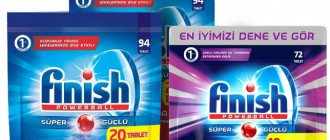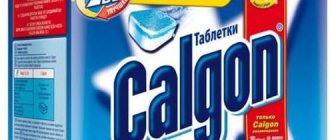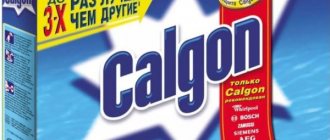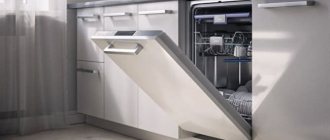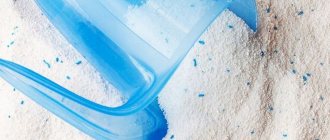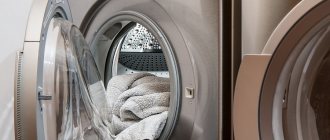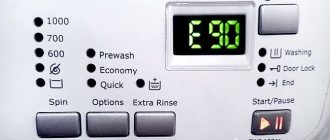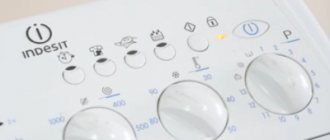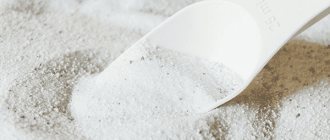Drinking tea is a pleasure. Only when the kettle is used for a long time does boiled water acquire an unpleasant taste from scale deposited on the walls. Tea brewed in such water takes on a grayish tint and has no real taste.
Electric kettles begin to consume more energy or turn off before boiling. Simple ones boil more slowly.
The reason is that when water is boiled, some of the salts contained in it become insoluble, become sintered and literally stick to the walls and bottom of the kettle. There is no escape from this.
You can slow down the process by filtering the water before boiling. There will be less scale, but it will not disappear completely. A hard limescale layer will form even if you simply keep the kettle constantly filled with water.
Many manufacturers recommend draining hot water from the kettle. No matter how hard you try, scale appears, and its layer increases over time. Sooner or later, you will have to descale the kettle, no matter what it is: glass, plastic, steel, enameled.
Methods for descaling kettles
Glass
It tolerates acidic environments well; you can even use soft abrasives to process it. Just do not allow temperature changes under any circumstances: it is unacceptable to wash a hot kettle with cold water - it will burst!
Plastic
Do not rub with metal or abrasive pads. Even a regular brush can leave microscopic scratches. Chemical exposure to plastic is not dangerous.
Kettle made of food grade steel
Although stainless, it will, one way or another, react with acid. The inside surface may become rough, causing scale to form faster and more difficult to remove next time. Therefore, the concentration of the acidic solution should be less than in other cases.
Enameled surface
Perhaps the most unpretentious. Just be careful not to let too much water boil away.
Why are we talking about acid? It is the acid at high temperatures that can dissolve or soften the limescale crust, after which it is quite easily removed.
Do you know which tea is considered the highest quality? Basilur tea is one of the highest quality and delicious teas in the world!
Don't like to drink tea just like that? Don't have time to bake? Read about how to make a delicious tea pie in just 15 minutes on this page.
How often should you clean your kettle?
The frequency of the procedure depends on the nature of the device’s operation and the quality of the water. With soft or filtered water, it is enough to carry out the procedure once every 1.5-2 months. If the water is too hard, you will need to clean the device 1-2 times a month, as needed.
The rate of formation of lime deposits directly depends on the composition of the water
Descaling solution
To remove scale you need 1{ff3290b889689e93688dc8b73290c9f83eb66bc381a1eb5e1a8ac1930feb8ef5} acid solution. Regular table vinegar 9{ff3290b889689e93688dc8b73290c9f83eb66bc381a1eb5e1a8ac1930feb8ef5}. If you add 100 - 111 grams of vinegar to a liter of water, you will get approximately what you need. Vinegar essence (70{ff3290b889689e93688dc8b73290c9f83eb66bc381a1eb5e1a8ac1930feb8ef5}) will need 14.5 grams - that's about one tablespoon.
Dry citric acid needs 10 grams per 1 liter. The weight is written on the bag, you can calculate it. The calculation is adjusted taking into account the volume of the kettle.
Where does scale come from?
In hard water flowing from the tap, when heated, the salts present in it decompose. As a result, scale and carbon dioxide are formed consisting of insoluble salts. The higher the heating temperature of the heating element in the washing machine, the greater the likelihood of scale formation.
You can get rid of salt deposits in a washing machine, dishwasher or kettle using special products .
Composition and properties of Antiscale
Cleaning the washing machine and dishwasher should be done with the help of Antiscale, which will quickly help get rid of deposits on the heating element and metal parts.
After using this product, the heating element will become shiny, and the equipment will work more economically. It is recommended to use Antiscaler no more than once every three months. Otherwise, according to experts, some products may begin to corrode the metal. But if you follow the instructions for use and the dose recommended by the manufacturer, there will be no harm to the equipment.
Antiscale contains the following components:
- Sulfamic acid . About 30% is added to the descaling agent. With the help of this acid, industrial equipment and machines are cleaned of lime deposits, rust and water scale.
- Adipic acid . It is a strong agent that can dissolve salts, therefore it is widely used in industry. Antiscale contains approximately 5% adipic acid.
- Sodium citrate or citric acid salt. In descaling products, its share makes up a third of the total volume.
Cleaning scale with apple peels or potato peelings
Fill the kettle about a third full with raw materials, add water and boil for half an hour - an hour.
Not suitable for plastic products either.
A variation of this recipe is boiling lemon or lemon peel. One lemon or the peel of two fruits is enough per liter of water.
After the procedure, you need to thoroughly wash the kettle. It is best to boil clean water in it after rinsing and then pour it out to be sure that no traces of chemical exposure remain.
You did all this, but you couldn’t remove the scale completely? Well, you just need to repeat the procedure until the inner surface is clean.
And how often to repeat the whole operation? It depends on the quality of the water. In hard water, the concentration of salts is higher, which means scale forms faster and you will have to clean it more often.
Trend of the season! A glass electric kettle is not only beautiful, but also very functional!
You can see how to choose the best geyser-type coffee maker here!
You can find out how to choose the best coffee maker for your home at this address:.
Antiscale for washing machines
The market offers many different descaling products. Each of them is designed for different surfaces and materials. The following products are produced for washing machines and dishwashers:
- Antiscale Cinderella is a liquid product that can be used not only to clean equipment, but also teapots. Available in plastic containers with a volume of 250 ml. With the correct instructions for use, it perfectly removes limescale deposits without damaging rubber parts. For one use, two caps of Cinderella are enough, which should be mixed with one glass of water. The solution is poured into the drum of the machine, in which a washing program is started at a temperature of 40C. Cinderella can be used once every six months.
- Greenfield Rus is an anti-scale agent against limescale on washing machines and dishwashers. Available in packs of 250 g. To clean the machine, you will need to pour 60 g of the product into the drum and turn on the intensive mode. It is recommended to use no more than once every six months.
- Furman is a product that will rid equipment of salt deposits and scale. When used correctly once, it does not harm rubber parts. Furman has a very convenient packaging in 50 g. This is enough for one-time cleaning of washing machines and dishwashers.
Safety when descaling
Boiling water with vinegar produces fumes with an unpleasant odor. Remove household members, especially children, from the kitchen and provide ventilation. Simply, open the window.
After soaking the electric kettle in an acidic solution, warn everyone that there is no water in the kettle. Even better if you cover the kettle with a bag with a scary bright message, for example: “Do not drink! Acid!". If there are children in the house, it is better to put the kettle in a closet while cleaning it, where they have no access.
You also need to warn your household when you cool the soda solution: someone may mistake the mixture for plain water and drink it.
Regular descaling of the kettle will ensure that you always enjoy drinking tea without any foreign tastes.
Folk remedies for the dishwasher
You can descale equipment not only with special means, but also with what you have at hand.
Citric acid can help remove scale from your dishwasher. You just need to fill it up and run a short washing cycle. For one time, 300 grams of acid is enough.
Vinegar helps get rid of deposits well. To use it in the dishwasher, pour 300 grams of the product into the bottom of the basket and turn on the wash for thirty minutes.
An effective remedy is obtained from sodium bicarbonate (borax). Before using it, the car doors are wiped first with a damp sponge and then with brown sponge. After this, the dishwasher turns on. At the end of the program, any remaining product is removed from the surfaces.
To remove scale, you can use soda and vinegar after washing all the filters in the machine. To do this, it is recommended to use a soap solution and immerse the filter in it for 15 minutes. After installing the filter, soda is scattered at the bottom of the machine and a glass of vinegar is placed. It is better to do this in the evening so that the products are effective throughout the night. In the morning, the glass of vinegar should be removed and the dishwashing program should be started. When it is completed, the insides of the equipment are wiped dry with a rag.
How to clean the boiler yourself?
Over time, soot and scale settle on the heat exchangers in boilers, which reduces heating efficiency and can lead to the device stopping. Many boiler owners call a professional to carry out preventative cleaning. But you can clean the boiler yourself using an anti-scale agent.
Cleaning the boiler with antiscaling agent
Boilers are cleaned of scale using washing units - boosters. A booster is a container of approximately 20 liters filled with a cleaning mixture or rinsing solution. The hoses from the booster are connected to the boiler supply pipe and the return pipe. Then the boiler is turned on for heating.
When flushing the boiler, the booster should be filled with an anti-scale solution. Although many boiler owners prefer to clean them with citric acid, flushing with anti-scaling agent will be more effective. The time required to descale boiler parts using anti-scale agent is about one hour.
Antiscale is relatively inexpensive, and you can buy it both in regular stores and order it online in online stores.
Antiscale safety level
Some users are afraid to use lime dissolving cleaners because they have a “nuclear” composition. Of course, any chemicals are harmful, since the acids they contain can corrode even metal elements.
To ensure safety when using the cleaner, it must be used strictly according to the instructions, maximum once a quarter. If you follow the basic rules and dosage standards, no negative effect will occur.
Some housewives have adapted to using sodium carbonate (soda ash). This is a good option, but it doesn’t always help.
Prevention of carbonate and sulfate precipitation
The appearance of deposits is slowed down by following the manufacturers' recommendations for the operation of SMA: wash in a heating mode of <60ºC, use powders that include anti-scale additives. Excessive loads and incorrectly chosen mode also accelerate the formation of deposits.
Other areas of prevention:
- reduce water hardness using softening filters and demagnetizers;
- refuse to wash heavily worn clothes: fabric particles settle on the heating element;
- do not use powders from an unknown manufacturer;
- Regularly clean the pump filter from accumulated debris.
It is not recommended to use Calgon for prophylaxis for a long time: the substances it contains gradually accumulate on the surface of the heating element and are cemented into a crust of even greater hardness. The result will be known - destruction of the heater.
Product reviews
Olga, 44 years old I never use chemicals, I prefer more harmless liquids, I make a mixture: vinegar 200 g, lemon 3 tbsp. l., dilute with water, pour into a kettle and bring to a boil. I leave it until it cools and rinse, that’s it!
Svetlana, 28 years old And my mother taught me to peel with cucumber pickle or sour milk, I boil for about an hour. I do this once a week, I need to wash it well to remove the smell.
Marina, 55 years old Previously, I tried to get rid of it in every possible and impossible way. I cleaned it often and not always with suitable means and methods. Therefore, it either became unusable or began to “bite” with electric shock. But a few years ago. I found a very good cleaning method - “Astonish” is non-toxic and works quickly, I’m happy!
The only thing that can help in the fight against scale is timely work to eliminate it. Your health and the taste of your favorite drink will ultimately depend on this. And don’t forget that only with proper care, any item will last a long time!
Tips and tricks
To get rid of this problem forever, purchase:
- ultrasonic transducer;
- magnetic;
- electromagnetic.
And install it on a pipe with water, the installation technology is elementary, it will take 20 minutes. The magnet located inside will create: ultrasound, magnetic or electric field that prevents the deposition of salts. This way you will not get rid of scale, but prevent it.
A water softener will solve your problem once and for all. Stick to regularity; if you wash the kettle twice a week, the effort will be minimal. But if you launch it, you will have to spend a lot of money and suffer a lot.
Chemical cleaning methods must be approached responsibly; read the instructions carefully and adhere to them. After use, the kettle must not only be washed thoroughly, but also boiled empty water several times and drained.
If using tap water:
- stand for about a day;
- put a piece of silicon, this will help soften and at the same time disinfect the water.
What NOT to descale
Carbonated drinks. This method may seem effective to some, but do not indulge yourself in illusions. Citric acid, which is contained in these drinks, helps to cope with plaque. However, its pure powder is several times cheaper than sweet water and has no dyes or harmful preservatives.
Peels and peels. Another example of the reckless use of food for household purposes. Some housewives suggest throwing peelings of apples, pears and even potatoes into the kettle. But for electrical appliances this method is not only useless, but also harmful. The fact is that the main substance that dissolves scale is again acid, but it is contained in a minimal amount, which does not affect the result. In addition, if a foreign object gets on the heating surface, it will damage it.
Mechanical cleaning of heating elements
Understanding the structure of an automatic machine and possessing primitive technical skills for servicing equipment, you can clean the heating element manually. However, it is better to entrust the assembly of the washing machine to a specialist - due to mistakes made, the device may pass current.
The mechanical method is effective - you can clearly see the condition of the heating element before and after treatment.
Disassembling the equipment is not recommended if the warranty period has not expired. After an independent “invasion” the unit is not subject to free service.
General procedure:
- Remove the rear wall of the unit.
- Carefully remove the heating element.
- Using anti-scale agent, clean the heating element; an alternative method is to soak the part in lemon juice or vinegar.
- Remove scale, clean, dry and install heating element. Reassemble the machine in reverse order.
During disassembly, you should also inspect the condition of the moving parts of the drum. Eating them is a more difficult task, which is not recommended to be done on your own.
The heating element must be cleaned very carefully. In this case, the use of sharp tools such as a knife, file or hard metal brush is unacceptable.
If the actions taken did not give the expected effect, then most likely the heating element requires replacement. You can learn more about choosing and installing a heating element from this article.
Criterias of choice
The cleaning product works in different ways. Before purchasing, you should consider some recommendations from experts:
- Read the instructions online and read customer reviews. Additional information will help you find out whether a particular chemical product is really able to cope with its function. Also, a person will additionally learn about the sequence of cleaning and the advantageous components in the composition.
- Take a closer look at the packaging in the store. If you choose a concentrated liquid product, it is advisable to purchase it in a bottle with a handle or with an anti-slip layer. Instead of a liquid product, you can use powder.
- The choice is to choose products with dispensers or a measuring cup.
- At home, objectively assess the degree of contamination of the machine. If tap water has a soft composition, then reactive products should be discarded. You need to take a closer look at preventative agents and add them to the powder before washing.
- The liquid product helps to cope with plaque if the water is hard. The substance is added separately by turning on the unit without clothes.
- Calculate in advance how many times you will need to use the descaling agent, its cost and dosage for one procedure.
You cannot clean the device constantly, otherwise chemical particles will have a negative effect on the material of the unit. Cleaning is carried out 2 or 3 times a year.
Harmful factors from using anti-scale agent
When using non-dosed packaging, you can easily make a mistake with the amount of product. Therefore, many housewives advise purchasing individual bags.
Care must be taken when using. Like any chemical, antiscale can damage the skin and mucous membranes of the eyes.
If used after a long break, the descaling agent may act too harshly and pieces of scale will fall off the heating element. This situation will lead to the accumulation of limescale in the internal parts of the appliance and subsequently contaminate the water and laundry.
